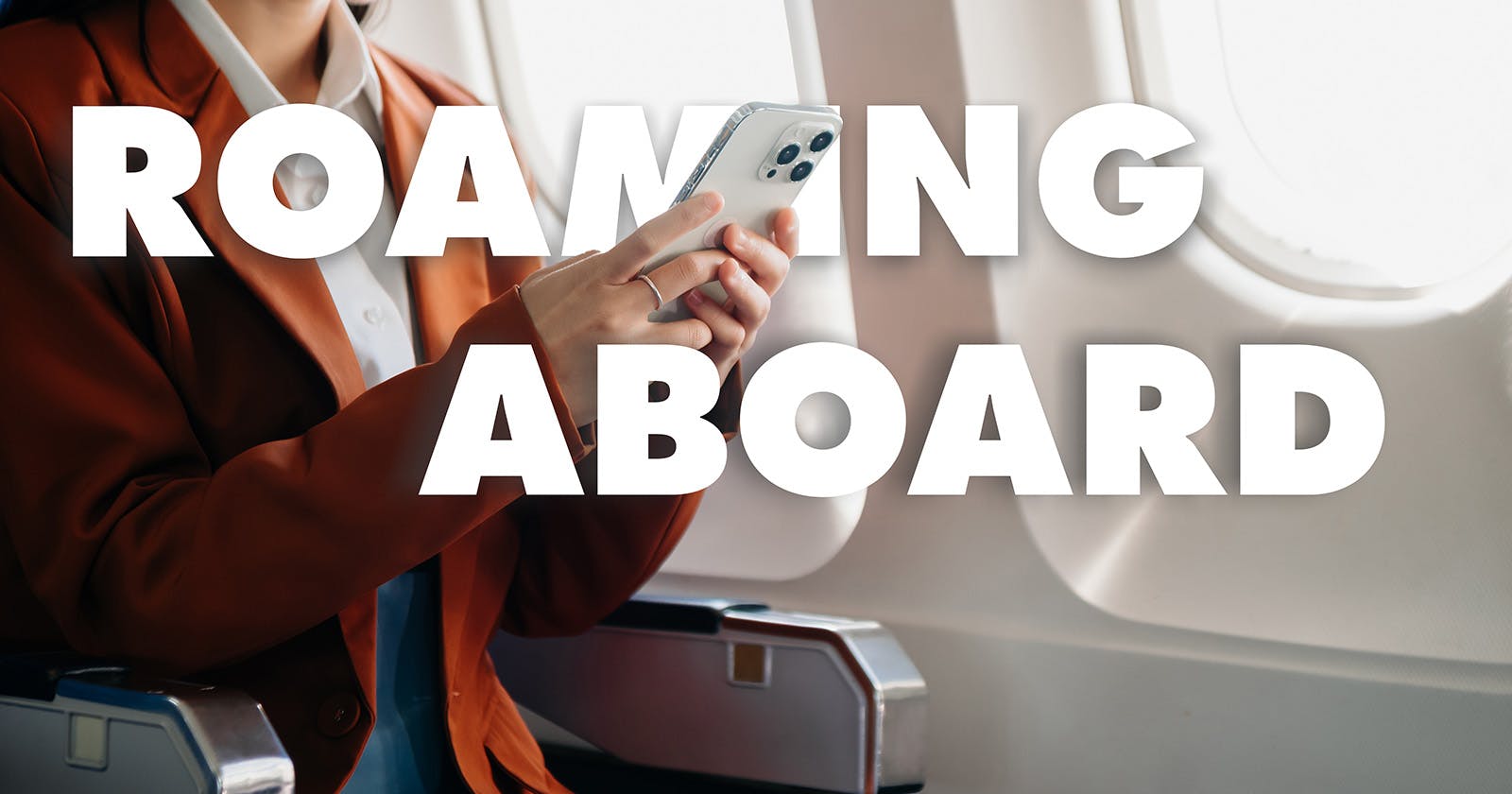Roaming abroad: countries, costs and tips for your travels

Anyone travelling abroad wants to use their smartphone as naturally as at home – for browsing, calling, navigating or quickly sending messages. While flat rates are often standard in Switzerland, unexpected costs can quickly arise abroad. The reason for this is roaming: your phone automatically connects to a foreign network, and the charges are billed through your provider.
The good news: with a bit of preparation, the right settings and a suitable subscription, you can stay relaxed online while travelling – without unpleasant surprises on your bill. In particular, yallo Black tariffs – BLACK Plus and BLACK Max – make travelling more comfortable than ever. Our expanded roaming packages now cover not only Europe, the USA and Canada, but also popular long-haul destinations such as Costa Rica, Thailand, Dubai, Egypt, Bosnia and Montenegro. This way, you can browse, call and communicate reliably even on long trips, without worrying about costs.
To ensure you enjoy your trip without concerns, we show you how roaming works, which cost traps to avoid and how best to prepare. In addition, we have compiled practical tips for the most popular destinations – from Costa Rica to Montenegro.
28.10.2025 | Reading time: 5 minutes
How does roaming work?
Roaming means that abroad your phone does not use your usual home network but connects to the network of a local partner. Your provider has agreements in place that set the prices for calls, SMS and data usage.
To give you an overview, providers divide countries into zones:
- Zone 1: this includes Europe, the USA and Canada. In many tariffs, data volume is included here, so you can browse without worry.
- Zone 2 and Zone 3: in these countries, charges are usually higher unless you book suitable packages or options.
In the yallo Roaming Cockpit section you always have an overview:
- how much data volume you have already used
- which packages and tariffs are available
- whether activating additional options is worthwhile
So you can easily keep your costs under control while travelling.
Some tips on how to use your data while travelling internationally
A few simple adjustments help you save money and avoid stress while travelling:
- Check before your trip: find out which zone your destination country belongs to and which options are available for your tariff.
- Use Wi-Fi: hotels, cafés or airports are ideal places to save data.
Disable automatic updates: cloud backups and app updates running in the background can drain your allowance without you noticing.
- Prepare offline content: download maps, music, films or tickets before you set off.
- Use a VPN: you browse more securely in public Wi-Fi networks with a VPN.
- Consider a local SIM or eSIM: for longer stays this can be cheaper.
- Activate manual network selection: this prevents your phone from accidentally connecting to expensive maritime networks or neighbouring countries.
Roaming in Costa Rica
Costa Rica attracts adventurers every year with its volcanoes, tropical beaches and unique national parks. However, the country is also considered challenging when it comes to internet connections. In cities such as San José, network coverage is usually stable and fast, often with 4G. In remote areas, along the coasts or deep in the rainforest, however, the signal can be weak or even non-existent.
Wi-Fi is available in hotels and restaurants, but it is often unreliable and heavily loaded during peak usage. For travellers who want to use navigation, communication and social media on the go, mobile data is by far the more reliable solution.
Costa Rica travel tips
- Check before your trip: which zone does your destination country belong to, what options are available?
- Use Wi-Fi: in hotels, cafés and airports you can save a lot of data volume.
- Disable automatic updates: cloud backups or app updates can drain your allowance without you noticing.
- Download offline content: save maps, music, videos or tickets in advance.
- Use a VPN: for secure browsing in public Wi-Fi networks.
- Nature & weather: during the rainy season (May–November) sudden showers occur. Pack waterproof bags for your devices.
- Health: mosquito protection is important to prevent tropical diseases.
- Transport: potholes are common on country roads – use offline maps.
- Sustainability: in national parks the “leave no trace” rule applies – download information offline to respect nature.
Roaming in Thailand
Thailand is one of the world’s most popular travel destinations – whether it’s the street food markets in Bangkok, the dreamlike islands in the south or the cultural hub of Chiang Mai in the north. Network quality is excellent in cities, with stable 4G connections. On smaller islands and in rural regions, however, there are often limitations. Wi-Fi is widely available in hotels, restaurants and even on beaches, but it is not always stable or secure. For travellers who want to remain flexible, mobile data is the more reliable solution.
Thailand travel tips
- Check before your trip: which zone does your destination country belong to, what options are available?
- Use Wi-Fi: in hotels, cafés and airports you can save a lot of data volume.
- Disable automatic updates: cloud backups or app updates can drain your allowance without you noticing.
- Download offline content: save maps, music, videos or tickets in advance.
- Use a VPN: for secure browsing in public Wi-Fi networks.
- Culture: in temples take off your shoes and cover your shoulders.
- Traffic: traffic jams in Bangkok are normal – use apps like Grab.
- Safety: be careful when renting scooters, keep valuables stored safely.
- Health: do not drink tap water, bottled water is better.
Roaming in Dubai (UAE)
Dubai is an international hub for business trips and short layovers. The city has one of the best network infrastructures in the region: 4G and 5G are available almost everywhere, with stable and fast connections. Wi-Fi is widely available in hotels, malls and at the airport, but without additional protection it is not always secure. Anyone working on the go or wanting to stay seamlessly online between appointments should not rely solely on public networks.
Dubai travel tips
- Check before your trip: which zone does your destination country belong to, what options are available?
- Use Wi-Fi: in hotels, cafés and airports you can save a lot of data volume.
- Disable automatic updates: cloud backups or app updates can drain your allowance without you noticing.
- Download offline content: save maps, music, videos or tickets in advance.
- Use a VPN: for secure browsing in public Wi-Fi networks.
- Heat: in summer up to 45 °C – plan activities early in the morning or in the evening.
- Clothing: in mosques and traditional districts wear long trousers and cover your shoulders.
- Transport: official taxis are reliable, alternatives include Careem or Uber.
- Shopping & costs: many mall Wi-Fi networks are free – useful for updates.
- Laws to observe: alcohol is only permitted in licensed restaurants.
Roaming in Egypt
Egypt attracts visitors with the Red Sea, the Pyramids of Giza and the temples of Luxor. Network coverage is stable in cities and major tourist hotspots, but often weak in rural areas or in the desert.
Wi-Fi is common in hotels, but often slow or overloaded, which makes mobile internet a reliable alternative – ideal for navigation, social media or working remotely while travelling.
Egypt travel tips
- Check before your trip: which zone does your destination country belong to, what options are available?
- Use Wi-Fi: in hotels, cafés and airports you can save a lot of data volume.
- Disable automatic updates: cloud backups or app updates can drain your allowance without you noticing.
- Download offline content: save maps, music, videos or tickets in advance.
- Use a VPN: for secure browsing in public Wi-Fi networks.
- Water & hygiene: avoid tap water – only use bottled water.
- Clothing: light cotton clothing protects from the sun and shows respect in religious sites.
- Safety: watch out for pickpockets, use reputable taxis.
- Culture: in mosques remove your shoes, respectful behaviour is essential.
- Health: sun protection and a head covering are indispensable.
Roaming in Bosnia and Herzegovina
More and more travellers are discovering the Balkan region for road trips and cultural journeys. In Sarajevo, Mostar and other cities, network quality is stable, while in remote mountain regions it can fluctuate. Wi-Fi is available in cafés, restaurants and hotels, but it is not always equally reliable. For travellers who are frequently on the move, mobile internet is the better choice.
Bosnia and Herzegovina travel tips
- Check before your trip: which zone does your destination country belong to, what options are available?
- Use Wi-Fi: in hotels, cafés and airports you can save a lot of data volume.
- Disable automatic updates: cloud backups or app updates can drain your allowance without you noticing.
- Download offline content: save maps, music, videos or tickets in advance.
- Use a VPN: for secure browsing in public Wi-Fi networks.
- Roads & traffic: in rural regions roads are often unlit – use offline navigation.
- Money: carry cash in Convertible Marks (BAM).
- Culture: hospitality is great – a few words in Bosnian can open doors.
- Nature: ideal for hiking – download maps offline.
- Safety: at night in cities keep an eye on your valuables.
Roaming in Montenegro
Montenegro is becoming increasingly popular: the Adriatic coast offers beaches, while mountains and national parks await inland. Network quality is stable in cities and coastal regions, but in the mountains it fluctuates greatly. Wi-Fi is widely available, but not always fast enough for more demanding applications. Mobile data therefore remains the more reliable choice for navigation and communication.
Montenegro travel tips
- Check before your trip: which zone does your destination country belong to, what options are available?
- Use Wi-Fi: in hotels, cafés and airports you can save a lot of data volume.
- Disable automatic updates: cloud backups or app updates can drain your allowance without you noticing.
- Download offline content: save maps, music, videos or tickets in advance.
- Use a VPN: for secure browsing in public Wi-Fi networks.
- Hiking: in the mountains reception fluctuates – offline maps are essential.
- Coastal towns: Budva & Kotor are crowded in summer – roaming is more stable than hotspots.
- Cruises: roaming on ships is billed separately, check in advance.
- Transport: public buses are inexpensive, timetables irregular.
- Nature & culture: respect national parks, avoid leaving litter.
Travel with peace of mind with BLACK roaming packages
Roaming no longer needs to be a concern. With the right preparation, you can stay relaxed online while on the go. If you know the zones, keep an eye on your data volume and pay attention to the cost cockpit, you will always have everything under control. The new extended roaming packages are a great help: they work not only in Europe, the USA and Canada, but now also in popular long-haul destinations such as Costa Rica, Thailand, Dubai, Egypt, Bosnia and Montenegro.
Whether you are relaxing on the beach, travelling for business or visiting family, you will remain reliably always connected and can enjoy your trip without worrying about high costs.
